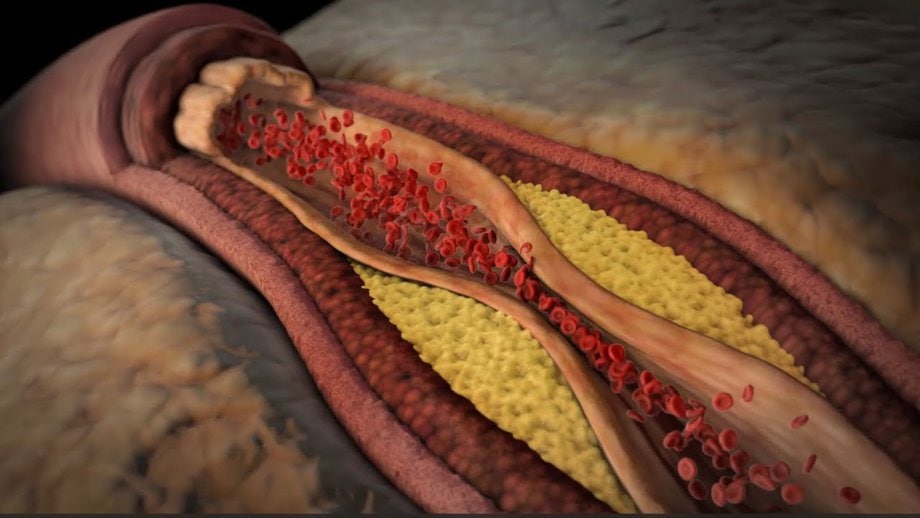What Are The Effects Of Hypertension On Bone Health?

Hypertension, commonly referred to as high blood pressure, is a prevalent chronic condition that affects a substantial proportion of the global population. It is characterized by persistently elevated blood pressure levels, which can lead to various adverse health outcomes.
While the association between hypertension and cardiovascular diseases is well established, emerging evidence suggests a potential link between hypertension and bone health. Understanding the effects of hypertension on bone health is of significant clinical importance, as it may have implications for the prevention and management of osteoporosis and fractures.
This article aims to explore the relationship between hypertension and bone health, specifically focusing on the impact of high blood pressure on bone density and the mechanisms underlying hypertension-related bone loss. Additionally, strategies for managing hypertension to promote better bone health, including lifestyle modifications and regular monitoring, will be discussed.
Key Takeaways
- Hypertension has a negative impact on bone health.
- Regular check-ups and blood pressure monitoring are crucial for optimal bone health.
- Early detection of hypertension allows for timely intervention and management.
- Lifestyle changes, such as exercise and maintaining a healthy diet, can reduce the risk of fractures and osteoporosis associated with hypertension.
Understanding Hypertension and Bone Health
Understanding the relationship between hypertension and bone health is crucial for comprehending the potential effects of high blood pressure on skeletal integrity.
Hypertension, or high blood pressure, is a common cardiovascular condition that affects millions of individuals worldwide. However, its impact on bone health is not widely recognized.
Recent research suggests that hypertension may have detrimental effects on bone health, leading to increased risk of osteoporosis and fractures. Hypertension may disrupt the delicate balance of bone remodeling, resulting in accelerated bone loss and decreased bone mineral density.
Moreover, the medications used to treat hypertension, such as diuretics and beta blockers, may further contribute to bone loss. Therefore, preventing hypertension and exploring alternative treatments for hypertension may be essential in maintaining optimal bone health and reducing the risk of skeletal complications.
The Link Between Hypertension and Bone Loss
The relationship between high blood pressure and the deterioration of bone density has been established through various studies. Hypertension, or high blood pressure, has been found to be associated with an increased risk of bone loss. One possible mechanism for this link is the effect of hypertension on vitamin D levels. Hypertension has been shown to be associated with lower levels of vitamin D, which is essential for bone health. Vitamin D deficiency can lead to decreased calcium absorption and increased parathyroid hormone levels, resulting in bone loss. Additionally, hypertension can also affect bone remodeling, the process by which old bone is replaced with new bone tissue. Imbalances in the signaling pathways involved in bone remodeling due to hypertension can lead to decreased bone formation and increased bone resorption. Overall, hypertension can have detrimental effects on bone health, contributing to bone loss and increased risk of fractures.
| Hypertension and Vitamin D Deficiency | Hypertension and Bone Remodeling |
|---|---|
| Hypertension has been associated with lower levels of vitamin D | Imbalances in bone remodeling signaling pathways due to hypertension |
| Vitamin D deficiency can lead to decreased calcium absorption and increased parathyroid hormone levels | Decreased bone formation and increased bone resorption |
| Resulting in bone loss | Contribute to increased risk of fractures |
Impact of High Blood Pressure on Bone Density
One intriguing aspect of the relationship between high blood pressure and bone density is the impact of elevated blood pressure levels on the structural integrity of the skeletal system. Hypertension has been found to affect bone health by interfering with calcium absorption, an essential process for maintaining bone density.
Studies have shown that individuals with hypertension tend to have lower bone mineral density, which increases the risk of osteoporosis and fractures. This may be due to the fact that high blood pressure disrupts the delicate balance of calcium regulation in the body, leading to decreased calcium availability for bone formation.
Additionally, the use of certain antihypertensive medications has been associated with adverse effects on bone health. For example, thiazide diuretics, commonly prescribed for hypertension, can increase urinary calcium excretion and potentially contribute to bone loss.
Further research is needed to fully understand the complex relationship between hypertension, calcium absorption, and the role of antihypertensive medications in bone health.
Mechanisms Behind Hypertension-Related Bone Loss
Research has unveiled the intricate mechanisms through which elevated blood pressure levels contribute to the detrimental loss of bone density.
One of the key mechanisms of hypertension-induced bone resorption is the activation of the renin-angiotensin-aldosterone system (RAAS). This system, which regulates blood pressure, also promotes bone resorption by increasing the production of pro-inflammatory cytokines and stimulating osteoclast formation and activity.
Additionally, hypertension-induced oxidative stress plays a significant role in bone loss by impairing bone formation and promoting bone resorption.
Inflammation also plays a crucial role in hypertension-related bone loss. Chronic low-grade inflammation, commonly observed in hypertensive individuals, leads to the production of inflammatory mediators that activate osteoclasts and inhibit osteoblasts, further accelerating bone resorption.
Understanding these mechanisms is crucial for the development of effective therapeutic strategies to prevent or mitigate hypertension-related bone loss.
Increased Risk of Osteoporosis and Fractures
Increased risk of osteoporosis and fractures is a consequence of the detrimental impact of elevated blood pressure levels on bone density.
Hypertension, characterized by high blood pressure, negatively affects bone metabolism, leading to reduced bone mass and increased susceptibility to fractures. Several mechanisms contribute to this phenomenon.
Hypertension-induced oxidative stress and inflammation disrupt the balance between bone formation and resorption, favoring bone resorption and impairing the formation of new bone tissue.
Additionally, hypertension alters the hormonal regulation of bone metabolism, affecting the levels of calcium, vitamin D, and parathyroid hormone, which are crucial for maintaining bone health.
Furthermore, hypertension reduces blood flow to bones, impairing the delivery of essential nutrients and oxygen to bone cells, further exacerbating bone loss.
Understanding these mechanisms is crucial for developing strategies aimed at preventing bone loss and fractures in individuals with hypertension.
Managing Hypertension for Better Bone Health
To optimize bone density and reduce the risk of fractures, effectively managing high blood pressure is essential. Managing hypertension with diet and exercise plays a crucial role in promoting better bone health.
Here are three key strategies for managing hypertension to improve bone health:
- Adopt a heart-healthy diet: Consuming a diet rich in fruits, vegetables, whole grains, and low-fat dairy products can help control blood pressure levels. These foods are also beneficial for bone health as they provide essential nutrients such as calcium, vitamin D, and magnesium.
- Engage in regular physical activity: Regular exercise, such as weight-bearing activities like walking, jogging, or resistance training, can help lower blood pressure and strengthen bones. Exercise promotes the growth of new bone tissue and enhances bone density, reducing the risk of fractures.
- Maintain a healthy weight: Excess body weight can increase blood pressure levels, placing additional stress on the bones. By maintaining a healthy weight through a balanced diet and regular exercise, the risk of both hypertension and bone-related complications can be minimized.
By incorporating these strategies into daily life, individuals can effectively manage hypertension and promote better bone health.
Lifestyle Changes to Support Bone Health with Hypertension
Implementing lifestyle modifications can contribute to the improvement of bone density and overall well-being in individuals with high blood pressure.
Dietary recommendations play a crucial role in supporting bone health. It is recommended to consume a diet rich in calcium and vitamin D, as these nutrients are essential for bone formation and maintenance. Foods such as dairy products, leafy green vegetables, and fortified cereals can provide adequate amounts of these nutrients. Additionally, reducing sodium intake is important, as high levels of sodium can increase blood pressure and negatively impact bone health.
Exercise recommendations for individuals with hypertension include weight-bearing exercises, such as walking or jogging, as these activities can help strengthen bones and improve overall bone density. Resistance training, such as lifting weights, can also be beneficial in building and maintaining bone mass.
By following these lifestyle changes, individuals with hypertension can promote better bone health and reduce the risk of fractures and osteoporosis.
Importance of Regular Check-ups and Monitoring Blood Pressure Levels
To ensure optimal bone health in individuals with hypertension, it is crucial to prioritize regular check-ups and monitor blood pressure levels.
Early detection of hypertension is of utmost importance as it allows for timely intervention and management. Regular visits to healthcare professionals enable the monitoring of blood pressure levels and provide an opportunity to assess the impact of hypertension on bone health.
This proactive approach allows for the implementation of appropriate lifestyle modifications and therapeutic interventions to prevent or minimize the long-term effects of hypertension on bone health. By closely monitoring blood pressure levels, healthcare professionals can identify any deviations from the normal range and tailor treatment plans accordingly.
Regular check-ups also facilitate the evaluation of treatment effectiveness and the adjustment of medication dosages if necessary. Ultimately, the importance of regular check-ups and blood pressure monitoring cannot be overstated in maintaining optimal bone health in individuals with hypertension.
Frequently Asked Questions
Can hypertension directly cause bone loss?
Hypertension has been associated with an increased risk of osteoporosis and bone loss. Studies have shown a negative relationship between blood pressure levels and bone mineral density, suggesting that hypertension may directly contribute to bone loss.
How does hypertension affect bone density in postmenopausal women?
Hypertension has been associated with reduced bone density in postmenopausal women. Hypertension may negatively affect bone remodeling, leading to an increased risk of osteoporosis in this population. Further research is needed to better understand the underlying mechanisms.
Are there any specific medications for hypertension that can impact bone health?
Specific medications for hypertension, such as thiazide diuretics and beta blockers, have been found to have an impact on bone health. They may increase the risk of osteoporosis and fractures, although more research is needed to fully understand this relationship.
Does high blood pressure increase the risk of fractures?
High blood pressure has been associated with an increased risk of fractures, potentially due to its negative effects on bone strength. The relationship between hypertension and osteoporosis is an area of ongoing research.
What are some dietary recommendations to support bone health in individuals with hypertension?
Dietary recommendations for individuals with hypertension to support bone health include consuming adequate amounts of calcium, vitamin D, and magnesium, limiting sodium intake, and following a balanced diet that includes fruits, vegetables, whole grains, and lean proteins.









